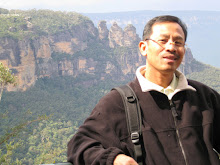5.From the National Election Committee - June 11, 2003
From the National Election Committee - June 11, 2003Questions and Answers - issue #14Q 1. What is the objective of the National Electoral campaign? A. Pursuant to the electoral Law, the objective of the electoral campaign is to allow political parties and candidates to convey their political platforms to voters.
Q 2. What is the period of the national electoral campaign? A. The electoral campaign starts thirty one (31) days before the polling day. The process of the electoral campaign will last for a period of thirty (30) days, which starts from June 26 until July 25, 2003 and all activities of the electoral campaign end 24 hours before polling day.
Q 3. What activities of the electoral campaign are restricted 24 hours before polling day and on polling day? A. Activities of the electoral campaign that are restricted 24 hours before polling day and on polling day are as follows: - Public meetings of political parties and candidates; - Any rally or march or procession either by foot or means of transport of all kinds or house by house propaganda to support a political party and/or its policy or an expression of opinion in order to garner voters; - Dissemination on radio or television channels or newspapers to support or criticize any candidate or any political party’s policy or platform; - Dissemination through airwaves or shouting of short slogans through loud speakers or tape recorders, which enable voters to hear political messages; - Dissemination through displaying videotapes in public theaters or public parks. - Posting of propaganda posters at public places; - Distribution of party’s leaflets, money or valuable gifts to convince voters to vote for his/ her political party; - Distribution of caps, clothes, T-shirts or other printed materials to support any political party and/ or candidate; - Putting up of banners at any public place and notice boards in order to post a political platform; - Orchestration of concerts in the form of a procession or at any particular place or singing propaganda songs or orchestrating election propaganda related music in order to make publicity to support any candidate or political party or to criticize a political party’s policy or platform. Q 4. Can civil servants, military personnel, policemen and court officials on duty participate in the electoral campaign of any political party? A. Civil servants, military personnel, policemen and court officials on duty cannot actively take part in the electoral campaign of any political party and they are not allowed to gather into state buildings or offices to convince voters. Q 5. What is prohibited active participation of any civil servants, military personnel, policemen and court officials on duty? A. Prohibited active participation of civil servants, military personnel, policemen and court officials on duty shall be defined as follows: - Being members of the Permanent Committee for Information and Media or the Commission for Electoral Campaign of any political party; - Participating in a procession, meeting and march to voice support and/ or criticize any political party or candidate; - Conducting opinion polls for any political party or candidate; - Distributing materials to voters in order to support a political party and/ or candidate; - Making public statements in support of a political party and/ or candidate; - Orchestrating music in support of a political party and/ or singing songs and/ or disseminating various political messages through loud speakers to support any political party and/ or candidate
Q 6. When can civil servants, military personnel, policemen and court officials participate in electoral campaign activities for political parties? A. Civil servants, military personnel, policemen and court officials can participate in electoral campaign activities to support any candidate or political party only after having completed their working hours, but they can not wear uniform or carry weapons.
Q 7. What are the roles of International NGOs operating in the Kingdom of Cambodia? A. The National Election Committee has called for and encouraged International NGOs operating in the Kingdom of Cambodia to actively collaborate in the public education campaign relating to the electoral process to assist in its effectiveness.
Q 8. What shall International and National NGOs do, regarding the content of materials for educating voters?A. Voter education materials produced by International and National NGOs must be neutral and impartial. They should not suggest support or denigrate of political parties and must comply with the electoral Law and regulations and procedures of the National Election Committee.


<< หน้าแรก